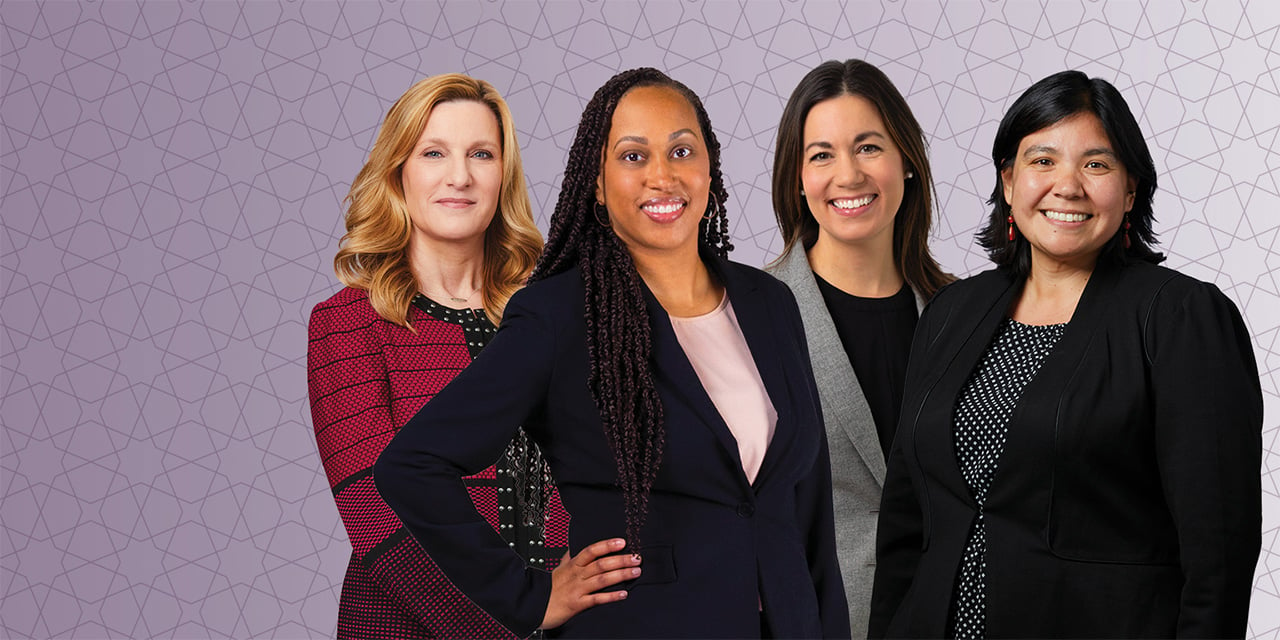
Retirement Guide
for Women
Identify Your Spending Goals
So how do these four components of wealth – assets, income, liabilities and expenses – shape your own financial picture? What can you do now so that when it’s time to retire, you can do so with confidence? A good place to start is by looking at your current spending – after all, what you spend in retirement will to some degree be informed by what you spend today. As you think about your options, ask yourself what would make you content. Start with the activities and lifestyle that you would find personally enriching and build around them. Other considerations might include:
Questions To Ask Yourself
Where do you want to live?
Do you want to be close to family and friends? What kind of climate most appeals to you? It’s worth giving some thought to taxes and cost of living in different locales, but you don’t want to trade your happiness for a lower tax rate.
What healthcare needs do you anticipate?
While genetics aren’t destiny, consider your family health history when making decisions around residence, travel, pastimes and finances. Health savings accounts can be an incredibly valuable tool for mitigating the high costs of healthcare: Not only are they funded with pretax dollars (lowering your taxable income), but any potential growth of your investments and qualified withdrawals are tax-free as well – all for expenses that are virtually inevitable.
How long will you live – and how long will you live alone?
Longevity data from 2021 point to women living on average 79.3 years, compared to 73.5 years for men.30 However, a closer look at Social Security actuarial data reveals the actual longevity difference to be much greater. After age 65, half of all widows go on to live an additional 15 years.31
Who are the people closest to you?
Think about the people and causes that mean the most to you. Your relationship with them could impact decisions on where you live, who makes financial and healthcare decisions in the event you are incapacitated, travel plans, how you might want to support them after you’re gone and much more.
How do you currently handle surprise expenses?
Expect some potholes during your financial journey in retirement. Data from Age Wave, a research provider on aging, shows that 81% of women retirees have experienced at least one disruptive life event that could set them back financially. According to the report, women “are hit with curveballs more frequently” and have fewer resources to make adjustments. 32 How would you deal with a surprise bill currently – do you have reserves in place for such an issue (like an emergency fund) or do you just deal with them as they come?

$531,000
A recent actuarial report projected that a woman at age 40 in average health could expect $531,000 in lifetime medical and drug costs, compared to $417,000 for men.33
Preparing for the Unexpected
As you think about your own retirement plans, it’s worth considering what you would do if you were to face a large expense you weren’t counting on, like an unexpected tax bill, a home or car repair or a major healthcare expense. For many retirees, the first call is to their broker to sell some stock – but selling stock can create its own problems, from tax implications to the potential of selling in a down market. It also decreases your retirement assets, and as we discussed, one of the top priorities for women in retirement should be preserving their wealth as long as possible.
One strategy to consider is increasing your liquidity. Liquidity is your ability to access cash when you need it. It’s often used to describe assets: Liquid assets like a money market account allow you to tap into cash easily, while illiquid assets like real estate or private equity cannot typically be converted so readily.
Emergency funds, home equity lines of credit, credit cards – when managed wisely – are all liquid funding sources that can be helpful in retirement, but fitting them into a sound financial strategy in retirement takes planning. (As an example, if you wait until you’re retired to apply for a line of credit, you’re much more likely to get rejected, as you’ll have no income to support it.) Your financial advisor can advise you on your liquidity needs and what kinds of funding sources are appropriate for your circumstances in retirement.

What You Can Control
While you think about what your retirement might look like, keep in mind that four of the main drivers of a successful retirement are largely things you can control:
Knowing when to retire can be a delicate balance. If you choose to leave the workforce too soon, you might have to compromise on your ideal retirement. Working later can bring with it a greater degree of economic certainty – but leaves you with less time to enjoy your “golden years.”
It’s true, no one knows exactly how long they’re going to live – which is why you should conservatively (and optimistically!) assume a long life. This is especially true for women, who at age 85 or older outnumbered similarly aged men nearly 2 to 1.34 The lifestyle choices you make now will have an outsized impact on how well and how long you live in retirement.
Conventional wisdom holds that as you get older, you should start to move your retirement investments into less risky – but less rewarding – assets like bonds. There’s some merit to that argument: When you’re in retirement and the stock market experiences a severe downturn, you typically have neither the income stream nor the time to build back your losses. But when it’s common for women to live into their 80s and 90s, you might need to plan on 30 years of retirement income, if not more. There definitely is risk in going too conservative too soon and easing off the gas prematurely.
One of the most difficult challenges in transitioning to retirement is knowing how to adjust your spending. As important as budgeting is in your working years, it’s even more important in retirement, when you don’t have a paycheck to make up for unwise money decisions. All the personal finance advice from when you were first starting out – don’t overspend, keep an emergency fund, don’t charge on a credit card anything you couldn’t afford to pay in cash – becomes especially important now.
We're Here For You
There’s a lot that goes into being financially prepared for retirement, and the sooner you start planning for it, the more options you’ll have when you’re ready to make that transition. Partnering with an advisor who understands your priorities, your circumstances and what you want to accomplish in retirement – one who takes a holistic approach to financial planning – is invaluable. Whether it’s getting you started on your own retirement journey or serving as a second set of eyes on your existing plans, your Baird Financial Advisor is here to help – so when it’s your time to retire, you can enjoy every minute of it.

Learn How Baird Can Help You Build Confidence in Your Retirement
We’d like to hear your retirement story. Complete the form below, and let’s talk about how we can help you.


